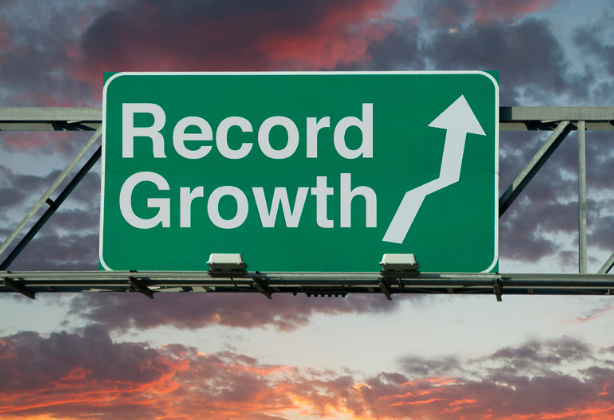

Hungary’s Real Estate Market Achieves Record Growth with Emphasis on Sustainability
In January 2025, Hungary’s real estate market experienced significant growth, setting new records in transactions and mortgage disbursements. According to Duna House, there were 9,267 property transactions, marking an 11% increase compared to January 2024.
Although this represents a 9% decrease from December, the overall trend indicates a robust market. The mortgage sector also saw substantial activity, with 120 billion forints (€298.6 million) in residential mortgages disbursed, reflecting a 46% rise from the same period in 2024.
These figures highlight the market’s strong start to the year. Property prices have risen across various regions and property types. In Budapest, panel flats in Buda districts surpassed 1 million forints (€2,490) per square meter, while those in Pest districts exceeded 900,000 forints (€2,240) per square meter.
Brick apartments in Buda averaged over 1.2 million forints (€2,986) per square meter, with central Pest areas reaching over 1.3 million forints (€3,235). These increases reflect heightened demand and the market’s dynamic nature. Sustainability has become a focal point in Hungary’s real estate development. Industry experts emphasize the importance of retrofitting existing buildings to meet green standards and integrating energy-efficient designs in new projects.
Addressing the energy efficiency gap in older properties is crucial for reducing environmental impact and enhancing property value. Developers are encouraged to obtain green building certifications and implement eco-friendly technologies to align with global sustainability trends. The government supports sustainable real estate initiatives through various programs.
The National Bank of Hungary plans to launch green financing schemes for homeowners and companies, contingent on favorable economic conditions. These programs aim to promote energy-efficient housing and environmentally responsible construction practices. By providing financial incentives, the government seeks to encourage the adoption of sustainable solutions in the real estate sector.
Market analysts predict that the emphasis on sustainability will continue to shape Hungary’s real estate landscape. Investors and buyers are increasingly prioritizing eco-friendly features, recognizing their long-term benefits.
Properties with sustainable designs not only contribute to environmental conservation but also offer cost savings through reduced energy consumption. As awareness grows, the demand for green buildings is expected to rise, influencing future development trends.
The integration of sustainable practices in real estate aligns with global efforts to combat climate change. By focusing on energy efficiency, resource conservation, and environmentally friendly materials, Hungary’s real estate sector contributes to broader environmental goals.
This approach enhances the country’s appeal to international investors seeking responsible investment opportunities. The commitment to sustainability positions Hungary as a forward-thinking participant in the global real estate market.
Educational initiatives are essential to promote sustainable real estate practices. Workshops, seminars, and training programs can inform industry professionals and the public about the benefits of green buildings. Raising awareness about energy efficiency, sustainable materials, and eco-friendly technologies fosters a culture of sustainability.
These efforts empower stakeholders to make informed decisions that support environmental objectives. Collaboration among government agencies, private developers, and financial institutions is vital for advancing sustainability in real estate.
By working together, these entities can create policies and programs that incentivize green building practices. Public-private partnerships can facilitate the development of sustainable infrastructure and housing projects. Such cooperation ensures that sustainability becomes an integral part of the real estate industry’s growth.
Technological advancements play a significant role in promoting sustainable real estate. Innovations such as smart home systems, renewable energy installations, and advanced insulation materials enhance energy efficiency. Incorporating these technologies into building designs reduces environmental impact and operational costs.
Staying abreast of technological developments enables the real estate sector to implement cutting-edge solutions for sustainability. Consumer preferences are shifting towards sustainable living environments. Buyers and renters are increasingly seeking properties that offer eco-friendly features and healthy indoor environments.
Developers who prioritize sustainability can meet this growing demand and gain a competitive edge. By understanding and responding to consumer trends, the real estate market can align with the values of modern society. Financial benefits are associated with sustainable real estate investments.
Energy-efficient buildings often qualify for tax incentives, grants, and favorable financing terms. Lower utility costs and maintenance expenses contribute to higher net operating income. Investors recognize that sustainable properties tend to have higher occupancy rates and property values.
These economic advantages make sustainability a prudent choice for real estate stakeholders. The focus on sustainability also addresses social responsibility. Developing affordable, energy-efficient housing improves living conditions for lower-income populations.
Community-oriented designs that incorporate green spaces and public amenities enhance quality of life. Real estate projects that consider social and environmental impacts contribute positively to society. This holistic approach reflects a commitment to the well-being of current and future generations.
Regulatory frameworks are evolving to support sustainable real estate practices. Building codes and standards increasingly mandate energy efficiency and environmental considerations. Compliance with these regulations ensures that new developments meet sustainability criteria.
Staying informed about regulatory changes is essential for developers and investors to remain compliant and competitive. Market demand for sustainable real estate is expected to grow. As environmental awareness increases, more consumers and businesses will seek properties that align with their values.
The real estate sector must adapt to this demand by incorporating sustainable practices into all aspects of development and operations. Proactive engagement in sustainability will position market participants for long-term success.






























